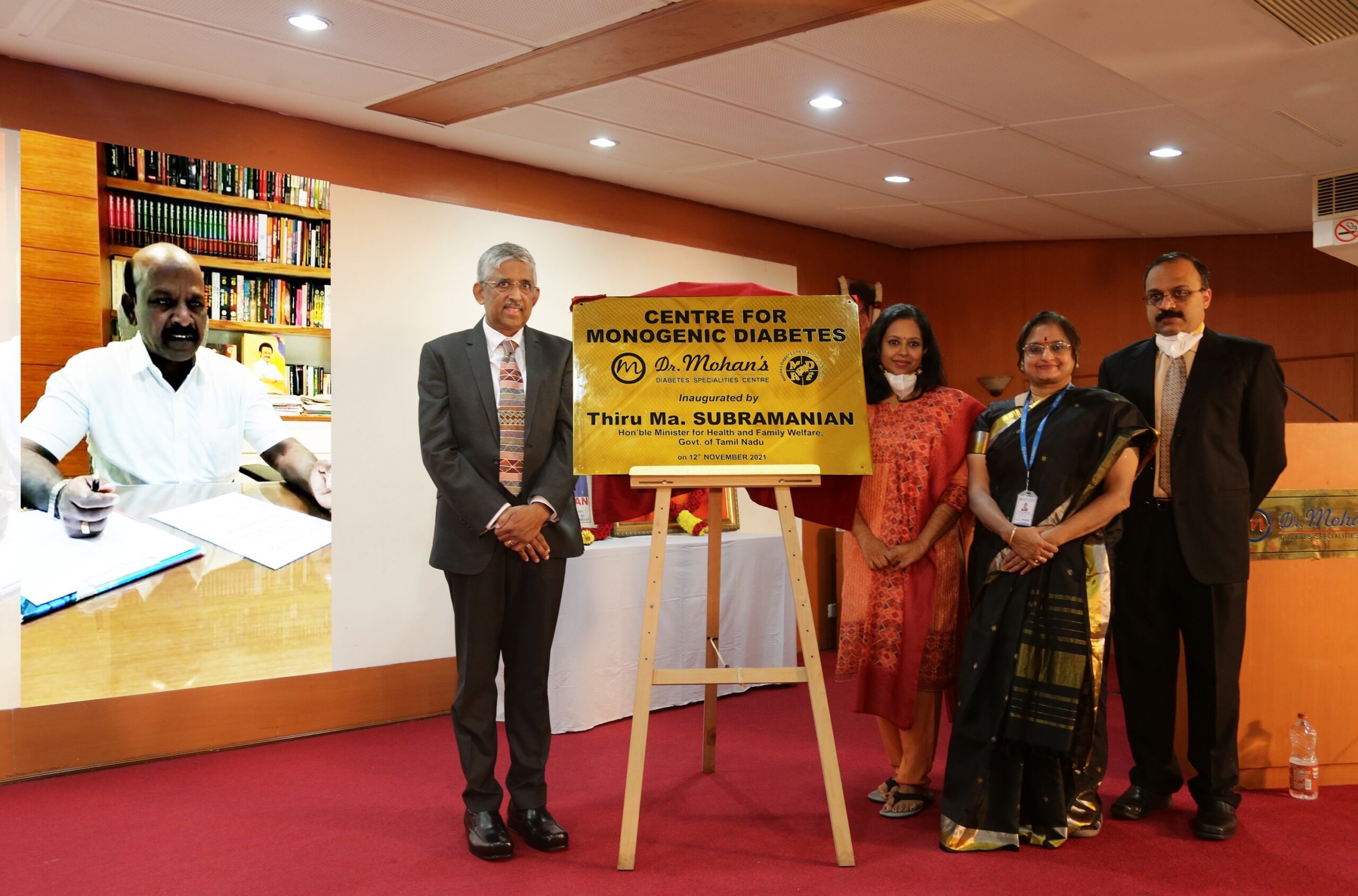The Madras Diabetes Research Foundation (MDRF) and Dr. Mohan’s Diabetes Specialities Centre, one of the largest Healthcare groups devoted to the treatment of diabetes and its complications in Asia, announced the inauguration of the Centre for Monogenic Diabetes at Dr. Mohan’s Diabetes Specialities Centre’s, Gopalapuram premises.
The Centre for Monogenic Diabetes was inaugurated virtually by Thiru. Ma. Subramanian, Hon’ble Minister for Health, Medical Education & Family Welfare, Government of Tamil Nadu.Dr. V. Mohan, Chairman, Dr. Mohan’s Diabetes Specialities Centre; Dr. Ranjit Unnikrishnan, Vice Chairman, Dr. Mohan’s Diabetes Specialities Centre; Dr. R. M. Anjana, Managing Director, Dr. Mohan’s Diabetes Specialities Centre; Dr. Radha Venkatesan, Head of Genomics, Dr. Mohan’s Diabetes Specialities Centre; were also present on the occasion.
Honourable Health Minister Thiru Ma. Subramanian lauded Dr. Mohan’s Diabetes Specialities Centre’s unwavering endeavour over the past three decades towards diabetes treatment and care and said Tamil Nadu was proud to have a Centre of Excellence for Monogenic Diabetes
Speaking about Monogenic Diabetes, Dr. V. Mohan said, “Monogenic Diabetes refers to forms of diabetes caused by a mutation in a single gene. While there are several forms of monogenic diabetes, the two commonest forms are called Maturity Onset Diabetes of the Young (MODY)and Neonatal Diabetes. MODYaffects children or youth, and family history of diabetes can be traced to three or more generations. There are several subtypes of MODY, and many of these can be controlled with tablets. In such cases, insulin injections can be stopped, and thetablets often work better than insulin. Dr. R.M Anjana Managing Director, Dr. Mohan’s Diabetes Specialities Centre said“Neonatal Diabetes affects children below 6 months of age and is due to genetic defects in pancreatic insulin secretion. These defects be corrected by giving antidiabetic tablets like sulfonylureas which are inexpensive”.
Dr. Ranjit Unikrishnan Vice Chairman, Dr. Mohan’s Diabetes Specialities Centre added “In many cases, children with MODY and Neonatal Diabetes are wrongly diagnosed to have type 1 diabetes and prescribed lifelong insulin injections. By doing a simple genetic test, if monogenic diabetes forms which respond to tablets are diagnosed, such children may stop insulin and be treated with tablets. It’s like a miracle for them.”
Dr.Radha Venkatesan, Head of Genomics at MDRF added, “ The Centre will use Sanger sequencing, a ‘first generation’ DNA sequencing method, which holds an important place in clinical genomics. It allows doctors to read the human DNA code and understand how particular sequence variations influence the risk of conditions such as monogenic diabetes”.




Average Rating